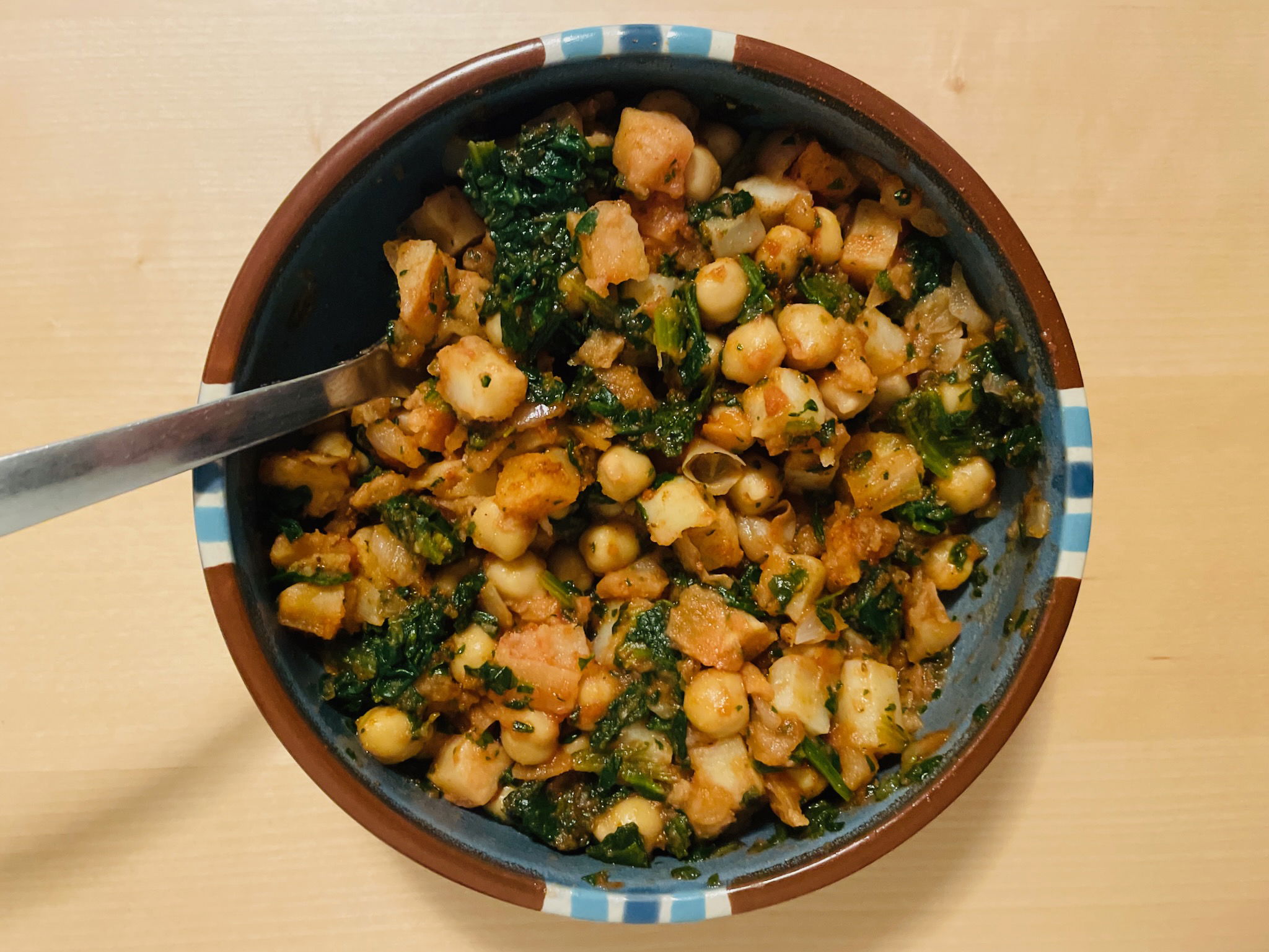
Introducing “Oldbay Potatoes”
My therapist and I think sometime last year was the only other time I experienced what we’ve taken to calling food exhaustion, this latest bout having cropped up sometime during the month of July. It threw my entire daily meal plan into disarray, except for breakfast which had settled into a bowl of Grape Nuts, a single-serving container of Tillamook vanilla bean yogurt, and a box of Sun-maid raisins.
Weirdly, as if prompted by my posting through it on Bluesky, Thinking Person’s Guide to Autism in late July shared an article about ARFID. I’d never heard of it.
Being a ‘picky eater’ is a woefully inadequate description of ARFID (which stands for "Avoidant Restrictive Food Intake Disorder"). Most of the time, it didn't even have to do with disliking certain foods. A food could look good, smell good, even taste good to me, but my body physically wouldn't let me swallow it. It was as if foods were inappropriately setting off alarm bells in my body, reacting as if I were trying to poison it.
It doesn’t seem like I wrote about my food exhaustion last year, although I did write about how samefoods can change, something I’m accustomed to and isn’t especially disruptive because it’s always been the simple replacement of one thing I’ve been wanting to eat but no longer want to eat with another thing that I do want to eat.
Food exhaustion, regardless of whether it’s actually ARFID or just somewhat analogous to it, is different, in that you find what you’ve been eating suddenly repulsive, as if someone just slipped you a handful of rancid meat. Simultaneously, your bodymind doesn’t seem to have anything in particular lined up to replace it. As tough as it is to explain to someone who doesn’t experience sensory issues when it comes to food in the first place, it’s tougher still to explain this.
As the piece notes, “Sometimes, a food that was previously safe becomes something I cannot tolerate, often for unknown reasons”—and, yes, this is “immensely frustrating”.
In the end, I’ve come to settle into a lunch of a grilled cheese sandwich with a side of baked beans, although after the first week or perfect, even nearly Platonic, grilled cheeses suddenly I couldn’t make it right to save my life. This was enormously dysregulating because the last thing you need doing a bout of food exhaustion is to have something that’s working suddenly start not coming out right. All the more since I’d started off thinking that the autistically-stereotypical plain old cheese sandwich would work but I couldn’t take more than two bites without gagging. Finding that I absolutely inhaled that first grilled cheese had come with an overwhelming sense of relief.
I’m still working on tinkering and nudging that meal back into shape, but the true success story of finding food exhaustion replacements is what I’ve ended up making for dinner every day for the past month.
Not long before this bout hit, maybe with a bit of unconscious precognition that it was coming, I’d remembered liking Bombay Potatoes from Tasty Bite, and when the food exhaustion hit this seemed like something I probably could riff on.
Here, then, is my rough recipe for what I’m calling Oldbay Potatoes. Every ingredient here is either canned or frozen, and amounts are guided but not dictated by the serving sizes on the respective nutritional labels. In my case, everything here is just a store-brand product.
- Frozen southern-style hash browns (2/3 cup)
- Canned chickpeas (1/2 cup)
- Frozen chopped spinach (1/3 cup)
- Frozen chopped onions (1/4 cup)
- Canned tomato sauce (1/8 cup)
- Old Bay seasoning (I tbsp)
This is a one-pan meal. I fry up the hash browns first, then turn down the heat and add the chickpeas, spinach, onions, and tomato sauce which together don’t take that long to heat up. I sprinkle in the Old Bay while I’m stirring everything. That’s all there is to it.
One-pan meals are foundational to me being able to get anything resembling a decent meal into me. My current lunch of grilled cheese and baked beans, for example, is something of a minor hassle but because each item is about as uncomplicated as you can get it doesn’t cause too much friction for the fatigue or executive functioning.
It’s important, then, with lunch not being one-pan, and also not quite having rediscovered what made that first of grilled cheeses come out perfectly, that my dinner has found a consistent answer that abides by the one-pan rule, and that I actually look forward to eating every day. That last, of course, being the single most important thing when suddenly finding so much of what you’ve been eating on the regular for years to be repellant.